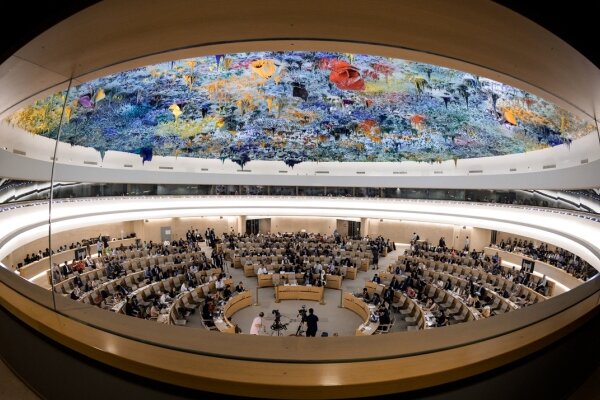Gholamreza Khaji, in an interview with the Strategic Council on Foreign Relations, referring to China’s proposed resolution in the Human Rights Council on the negative effects of colonial heritage, which was adopted despite opposition of European countries, said China struck an important political blow to the US and EU and is trying to rid them from the stratagem of “anti-human rights allegations”.
The international law analyst, meanwhile, noted that China has been widely criticized for its human rights record, and there have been numerous allegations of human rights abuses by the Chinese government. “Certainly we cannot place China among the countries that have paid full attention to human rights standards; At the same time, this country will never enter into any case of obvious human rights violations without considering its political and economic interests.”
Referring to the political and verbal tensions between China and the United States over human rights issues and the accusations they make against each other, Khaji said “Both countries never raise issues such as supporting the people of Yemen, Palestine or the oppressed of the world. In particular, they have not taken effective action against this, but China’s plan against colonialism must be supported.
“China has a long history of being colonized. China was under the domination of Japan during the Second World War. Now this country tries to use this experience and suggest that it was one of the colonized countries of the world,” he said, referring to the US decision to return to the Human Rights Council and China’s emphasis on the need for a panel discussion on the negative effects of colonialism on the enjoyment of human rights next year.
Khaji said that the Chinese emphasize that they are the descendants of Mao and are an anti-colonial hero. In this regard, Iran must emphasize its true flagship of human rights and, with that in mind, support China’s move because we have many words in the field of human rights issues for the world.
This professor of international law said “China knows that if it wants to go further in the economic sphere, it must also be culturally acceptable and attractive. It should not be forgotten that China wants to implement the idea of a dragon that devours the whole world! Therefore, it wants to reform its human rights barrier by changing mentalities”.
Referring to China’s efforts to increase its power in various dimensions and its close competition with the United States in this regard, Khaji said “China wants to send a message to various countries in the world that want or cooperate economically with it, and suggest that like America and Europe it can also raise human rights.
He described China’s move as “clever” and noted that some member states of the Human Rights Council have been involved in passing the resolution and that European countries have failed to do so.
He said that dominant anti-American and anti-Israeli atmosphere in the Human Rights Council encouraged countries to vote for this Chinese resolution, adding that China faces numerous challenges concerning human rights and suppression.
Khaji added that China seeks to create a “defender of human rights and humanism” in the minds of the people of the world so that it can take another step forward in its sphere of influence in countries and correct some unpleasant and negative attitudes towards China.
“Six years ago, we did not see a strong presence of China and Russia in the council at all; Today, China has come to the conclusion that it must become more active in the field of human rights and culture. Thus, if they increase their activities to advance the resolution, they can make an impact on the political landscape and public opinion, and address the various dimensions of contemporary colonialism,” he said, referring to China’s efforts to create currents in the Human Rights Council and play a more active role in its working groups.
“China will not be able to make great strides in the field of culture and human rights by attracting the support of other countries in spite of the political blow to the US and Europe. Accomplishment of great achievements will not be easy for China in cultural and human rights areas due to its ideology, its political structure and some anti-human rights measures.










0 Comments